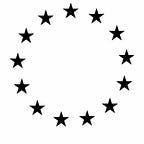Journalism: Censorship in the Digital Age
Threats both old and in the digital age seek to impose censorship on independent journalists around the world
Threats both old and in the digital age seek to impose censorship on independent journalists around the world. This couldn’t be more true today than ever.
The birth of the internet, it’s argued foreshadowed the death of censorship. In 1993, internet pioneer one of the founders of the Electronic Frontier Foundation John Gilmore said, “The Net interprets censorship as damage and routes around it.” Unfortunately, the “net” promotes censorship.
“Governments went from spectators in the digital revolution to sophisticated early adopters of advanced technologies allowing them to monitor journalists, and direct the flow of information.”
In his introduction, Committee to Protect Journalists Executive Director Joel Simon writes new technology allows for the free flow of information; it can also be manipulated by repressive governments to stifle free expression. “New information technologies — the global, interconnected internet; ubiquitous social media platforms; smartphones with cameras — were supposed to make censorship obsolete,” writes Simon. “Instead, they have just made it more complicated.”
Just because journalism had moved online, doesn’t mean governments were left behind. In fact, governments have found new and easier ways to censor and block journalists and media outlets.
China’s Golden Shield Project, colloquially known as the Great Firewall, is the crown-jewel of online censorship and surveillance. It’s a great example of how the Chinese Communist Party can block nearly any content it dislikes or disagrees with.
China’s methods include bandwidth throttling, keyword filtering, and blocking access to websites the CCP dislikes. According to Reporters Without Borders, the firewall makes large-scale use of Deep Packet Inspection technology to block access based on keyword detection.
In order to be the largest surveillance state in the world, China employs over a dozen government bodies to review laaws related to information flow and more than two million workers to enforce laws related to information flow within, into, and out of China. The most powerful monitoring body is the Communist Party’s Central Propaganda Department (CPD), which coordinates with other state agencies such as the General Administration of Press and Publication and State Administration of Radio, Film, and Television to ensure content promotes party doctrine.
A report in mid-2021 by Freedom House, a watchdog, found 20 out of 70 countries had shut down the internet in the previous year to keep their citizens in the dark, typically during periods of unrest.
States are increasingly using digital means to snoop on reporters, too. An investigation last year revealed almost 200 journalists had been targeted by Pegasus spyware, which is sold by an Israeli company to governments across the globe.
Old-school censorship was basically an exercise of cut and paste. Filtering, blocking, and hacking replaced scissors and black ink. Publishing Houses, television stations, movie agencies all had Government agents embedded into their ranks in order to make sure the content of newspapers, magazines, books, movies, or news broadcasts were suppressed or altered so only information judged acceptable would reach the public.
Some governments instead of censoring just outright barred access to Web pages dictators didn’t like. Users were redirected to sites that looked independent but which in fact governments controlled. The conversations in chat rooms and discussion groups were influenced via the participation of trained functionaries. Anonymous hackers were directed to vandalize sites and blogs, and disrupt the internet presence of critics by placing them in Facebook or Twitter jail; basically deplatforming them. Sound familiar?
Dictatorships operated on a whole different level, censorship meant an uncooperative media outlet could be shut down or unruly editors and journalists exiled, jailed, or murdered.
Technology is being used to defeat technology but then better technology arrives on the scene; it’s a vicious cycle. Sometimes old outdated technology is being deployed. During the Spring uprisings in the Middle-east, some journalists and bloggers relied on shortwave radios.
China, when it comes to the scale of censorship is the largest state to censor its citizens. Censorship isn’t 100%, there are always ways around it. Ultrasurf, Psiphon, and Freegate are popular software programs that allow Chinese users to set up proxy servers to avoid controls. The government’s crackdown on virtual private networks have led users to devise other methods such as inserting new IP addresses into host files, Tor, or SSH tunnels, which route all internet traffic through a remote server.
The internet can redistribute power. But it’s naïve to assume there’s a simple technological fix for governments and their leaders who are determined to concentrate power and do whatever it takes to keep it.
Censorship will rise and fall as technological innovation and the hunger for freedom clash with governments bent on controlling their citizens, starting with what they read, watch, and hear.
Editor’s note: I could’ve written volumes on this, in fact, the original draft was eight pages long. Also, I still had four pages of notes left. I edited, edited, and edited more to get this post to this point. Thanks.
If you enjoyed this post, please consider checking out these. Thanks!
Learn about me here. 2022© All Rights Reserved. (@agrainoffsalt)
